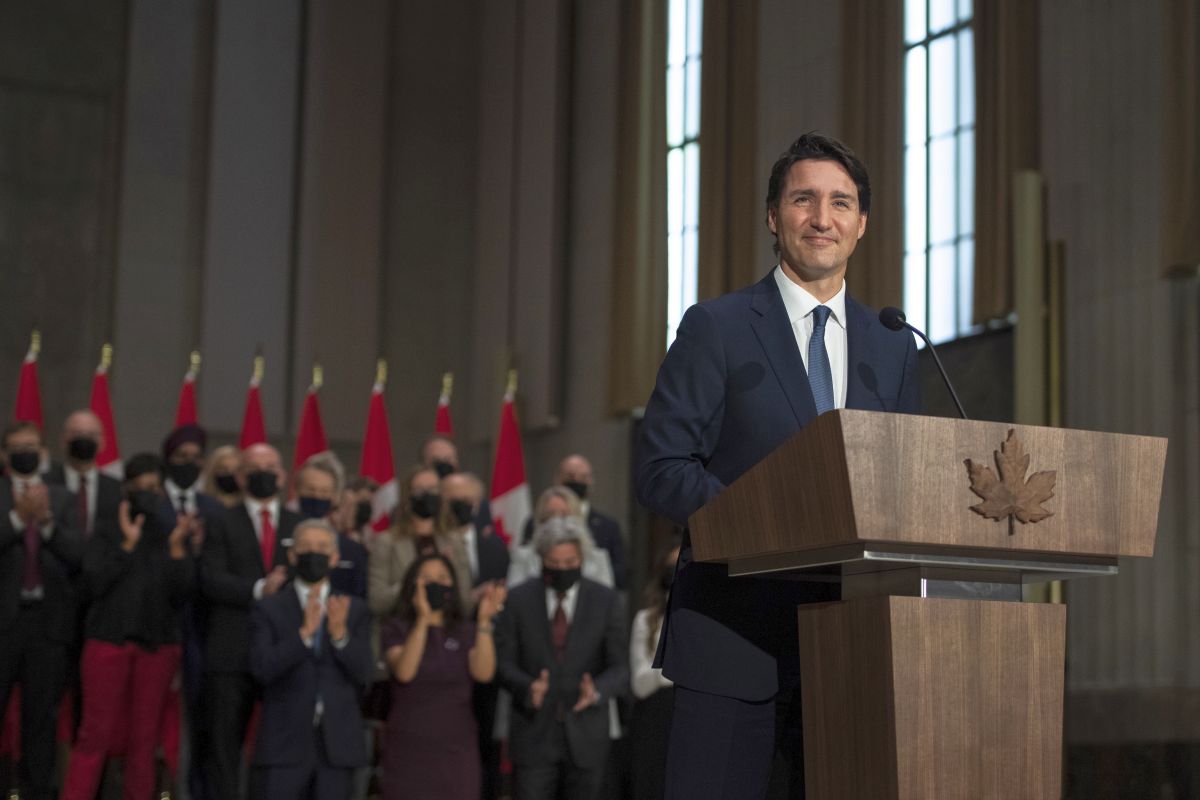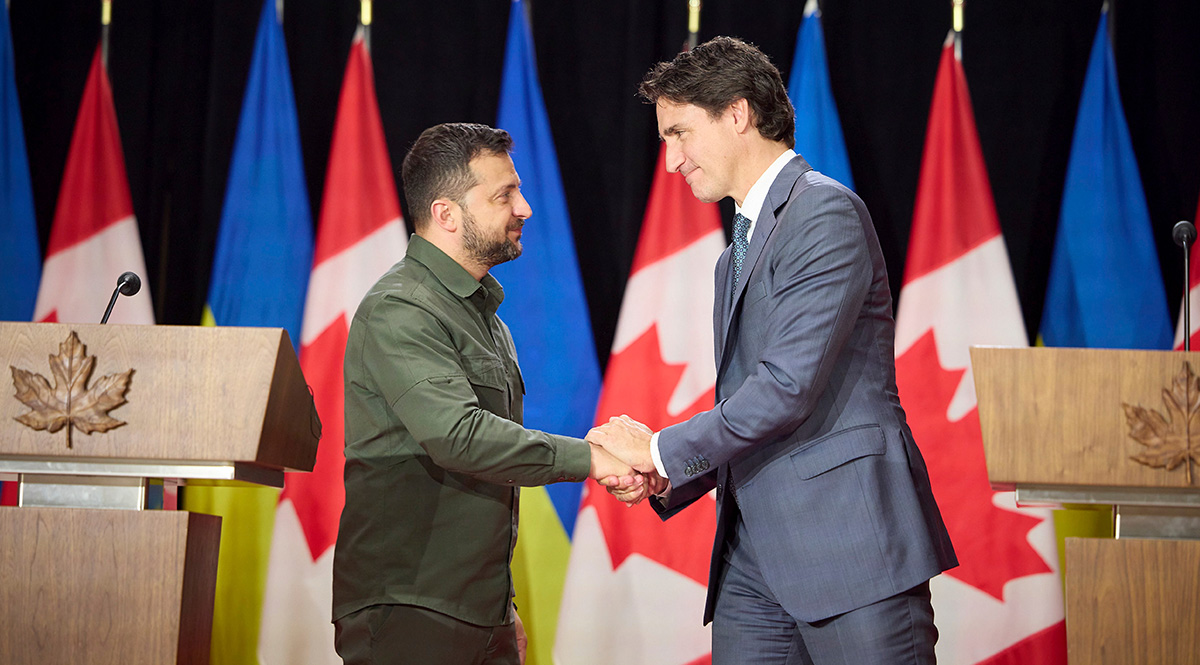Trudeau to Resign as Prime Minister and Head of the Liberal Party of Canada
On 6 January, Justin Trudeau announced that he would resign as the prime minister of Canada and leader of the Liberal Party of Canada (LPC). He also suspended parliament until 24, March, among other things, in order to delay a possible vote of no confidence in the government, which would force an early election. The decision by the prime minister, who has governed Canada since 2015, is intended to increase the Liberals’ chances of a good election result in this year’s parliamentary elections.
.png) Wyld Adrian/CP/ABACA / Abaca Press / Forum
Wyld Adrian/CP/ABACA / Abaca Press / Forum
What led to Trudeau’s resignation?
The main reason was the decline in support for Trudeau and his government related to the increase in the cost of living in Canada. Although inflation fell after the COVID-19 pandemic from 5% in June 2023 to 1.9% by the end of last year, the prices of key food products increased by 20% and housing rent by 22%. To alleviate the problem, Trudeau announced an increase in social spending, including a payment of $250 to about 19 million working Canadians earning $150,000 a year or less and a two-month tax break on certain goods and services. However, this plan led to an increase in the budget deficit from $40 billion to $46.8 billion, which caused serious tensions in the government. As a result, in December, Finance Minister Chrystia Freeland resigned, believing that the priority instead should have been to prepare Canada for the threat of increased tariffs by the incoming Donald Trump administration and a possible trade war with the United States. In December 2024, polls found that 74% of Canadians (including 43% of LPC voters) had a negative opinion of Trudeau’s policies. Support for the LPC fell to 19%, with 45% backing the Conservative Party of Canada (CPC). As a result, Trudeau, who is already in his third term in office, began to be perceived as a burden for the party ahead of the elections, which are scheduled to be held on time in October this year.
What are Trudeau’s domestic and foreign policy achievements?
Since taking office in 2015, Trudeau has pursued a policy agenda focused on reforms in several areas. He sought to normalise relations with Canada’s indigenous communities at the federal level. His government adopted a new Arctic strategy that provides for greater Canadian engagement in the region, both to support indigenous people and to strengthen the region’s security. He provided increased funding to local governments, which reduced the cost of childcare and early childhood education programmes. In 2018, the government fulfilled a key election promise by legalising the sale and use of non-medical marijuana, creating a market worth about $10 billion annually. A key area was Trudeau’s climate policy, which introduced a tax to reduce carbon dioxide emissions by 40% by 2030 and make Canada carbon-neutral by 2050. Under Trudeau, Canada supported Ukraine financially, donated equipment and weapons, trained Ukrainian military and security forces, and imposed sanctions on Russia. Despite low overall defence spending, Canada increased its contribution to NATO’s deterrence and defence policy—in 2017, Canada took command of the multinational battlegroup in Latvia. It also engaged in cooperation with partners from the Indo-Pacific and conducted maritime operations to protect freedom of navigation in the face of growing threats from China.
How could a change in prime minister affect the domestic political scene?
The LPC will have to choose a new leader for the election. Trudeau has announced that he will remain in office until a new leader is confirmed, which should happen within a few weeks. The decision to suspend parliament until 24 March is intended to facilitate this process. Although the elections are scheduled for October this year, there is the possibility of early elections. After the early elections in 2021, the LPC formed a minority government with the support of the social democratic New Democratic Party (NDP), which withdrew its support for the government in September 2024. The NDP did not file a motion of no confidence in the government at that time, but it may do so after the resumption of the session. However, a change in the LPC’s leader will not increase its chances of winning because the Conservatives’ advantage is too large. If the CPC maintains it, it could form a majority government for the first time since Stephen Harper’s government in 2011-2015.
What are the consequences for Canada’s foreign policy?
The suspension of parliament, the need for the LPC to elect a new leader, and the threat of early elections may complicate negotiations with the U.S. to prevent a trade war between the two countries. The political crisis in Canada coincides with the start of the second administration under Trump, who has repeatedly openly threatened Canada with higher tariffs. Trump is exerting pressure via tariffs to force its northern neighbour to seal the border, citing fentanyl smuggling and irregular migration. The implementation of Canada’s plans for the G7 summit, which is to be held in Alberta in June, is also in question. The programme prepared by the Trudeau government includes, among others, further support for Ukraine, counteracting foreign interference in democratic processes, and reform of financial institutions (e.g., the World Bank). At the same time, there are opportunities for changes in security policy. Trudeau announced in July 2024 an increase in Canadian defence spending to 2% of GDP—the level considered by NATO to be the bare minimum—but expected it to be achieved only by 2032. Despite that, Canada reached its goal that same year, and allies are already discussing raising the expectation to at least 3%. A potential takeover by the Conservatives could prompt them to increase defence spending faster and further strengthen Canada’s military potential.





.jpg)